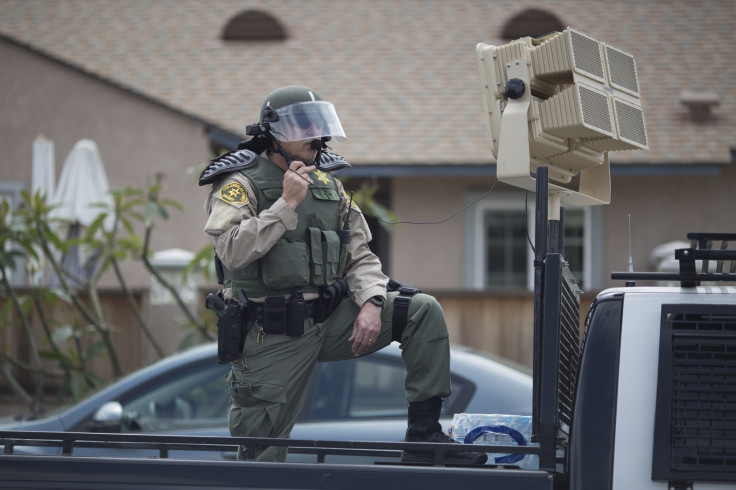What is a sound weapon and how likely is it that US diplomats have been targets of sonic attacks in Cuba?
Low-risk sound weapons are used in crowd control - but more sinister devices are shrouded in secrecy.

In the latest diplomatic spat that conjures communist-era hostilities between arch cold war enemies, Cuba has dismissed claims that US envoys in Havana have been targeted with sound weapons as "science fiction".
President Donald Trump last week accused Havana of harming 24 of the country's diplomats in a mysterious incident the US State Department was first alerted to in the days before the November 2016 elections. The victims complained of severe and unexplained hearing loss, according to the Associated Press, while Canadian officials reported experiencing headaches, nosebleeds, dizziness, and ringing in the ears, The Toronto Star reported.
Cuba denies the claims and has instructed 2,000 experts to unravel the mystery - but to no avail.
"It's impossible. We are talking about science fiction," Lieutenant Colonel Jose Alazo, an expert in the criminal investigation unit of the Interior Ministry said according to CNBC.
Seth Horowitz, a neuroscientist and author of The Universal Sense: How Hearing Shapes the Mind chimes with this standpoint. He told Business Insider that "there isn't an acoustic phenomenon in the world that would cause those type of symptoms".
So, it remains unclear what exactly is going on. But if the claims are true, this will not be the first time sound has been used as a weapon.
A sound weapon, or a sonic attack, targets a person or a group with audio waves in a way that causes physical symptoms. Humans can hear sound waves between 20 and 20,000 Hz. An infrasonic strike, therefore, involves sounds at a lower frequency than can be heard by the human ear, while ultrasound is too high.
In theory, sound waves could kill someone depending on the grade and the range. Luckily, this has never been proven, but the European Space Agency has calculated that 240dB - above the 120dB (decibels) maximum audible to humans - could make the head explode.
The issue of launching a harmful sonic attack lies in the logistics, however, as sound waves disipate into the air if they are not contained. A low frequency attack would require the aid of subwoofers, which are not very easy to conceal. Ultrasound is an (arguably) better option as it requires a speaker and a clear path.
Albert Speer, Hitler's chief architect, is believed to be among the first to attempt to design a sound weapon. As the Nazis saw the Second World War slipping through their fingers, he dreamt up a so-called acoustic cannon to deafen and kill a person by igniting methane and oxygen in a resonant chamber to set off a series of 1,000 explosions per second. This would set off a deafening beam of sound that would pressurise their organs and kill them in 30 seconds, according to Motherboard. Alas, nothing came of it.
More recently, officials across the world have used long-range acoustic devices (LRADs) to control crowds of people, particularly protesters. Over 70 countries own them, according to LRAD Corporation's latest report. These machines emit a loud sound painful to the ears and have been used by the US police in 2014 during protests in Ferguson, Missouri. They were also deployed in the run-up to the 2012 London Olympics, but never used. Mosquito devices, meanwhile, send out a sound that only young people can hear as a means to tackle what is seen as anti-social behaviour.
If all this sounds a bit like the stuff of tin-foil hat wearing conspiracy theorists, then you are in good company. Steve Goodman, the author of Sonic Warfare, told the New Scientist that stealth weaponry is so shrouded in rumour that it is hard to see the wood from the trees, while the audible kind is hardly a secret.
As for the poor diplomats in Cuba, Jürgen Altmann, a physics professor at Technischen Universität Dortmund in Berlin, told CNN that he knows of no acoustic effect that would produce concussion-like symptoms.
Neurologists even told the Guardian that effects the diplomats in Cuba are experiencing could be attributed to signs of stress. Meanwhile the loud diplomatic row between Washington and Havana continues.






